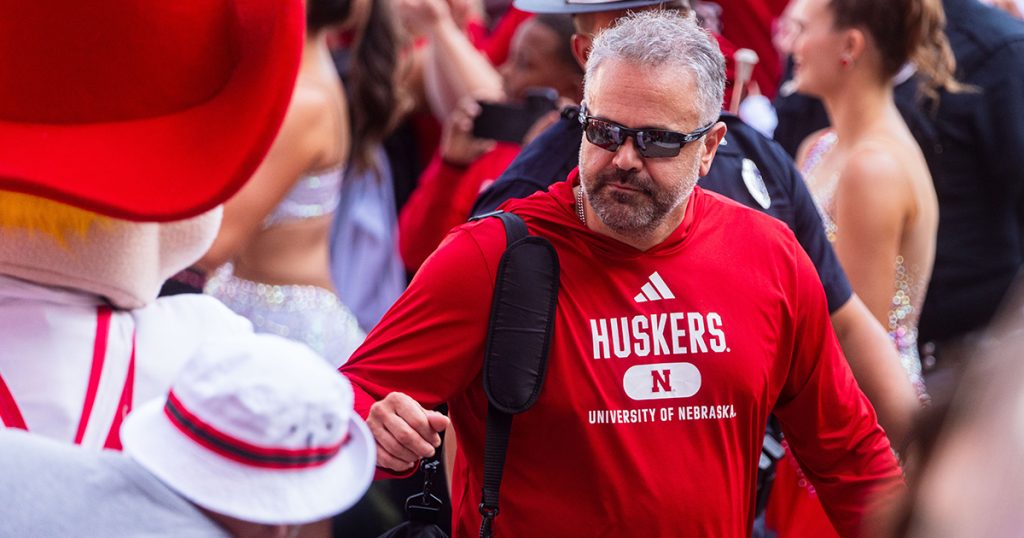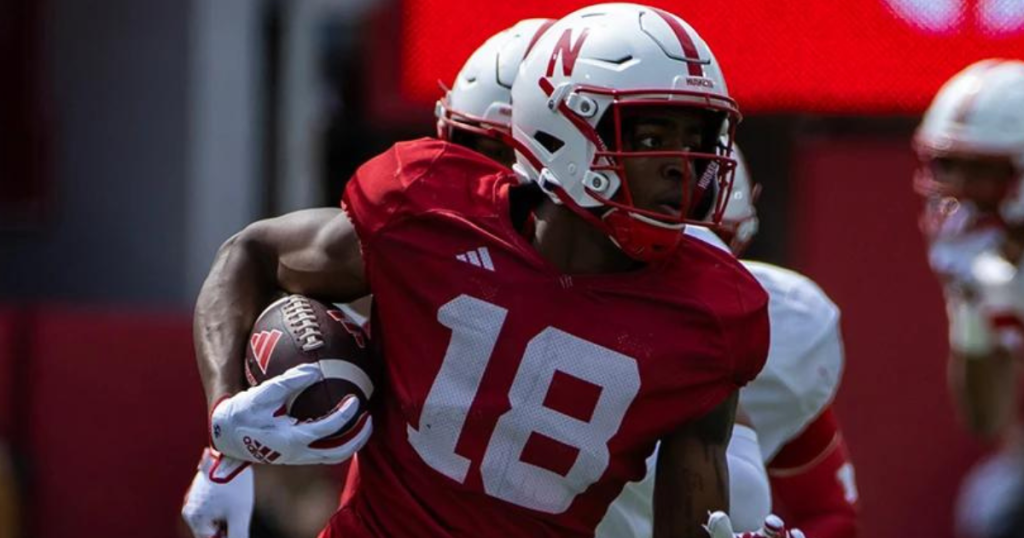When Matt Rhule took the helm at Nebraska, he found himself facing a familiar challenge: trimming a roster to meet new regulations. Having previously navigated the NFL’s roster cuts with the Carolina Panthers, Rhule is now applying that same strategic mindset to college football. The landscape is changing, and he’s ready to adapt.
Nebraska prepares for roster limits
The impending House v. NCAA settlement, set for full approval in April, will introduce a roster limit of 105 players. Currently, college football teams can carry up to 120 players, with 85 on scholarship. This shift is significant and could lead to tough decisions for coaches across the country, including Rhule and his Nebraska staff.
“From my experience, the first step is to establish your core group,” Rhule explained during a recent press conference. “We’re looking at our first 57, which is a tweak from the NFL’s 53-man roster. College football has its nuances, so we’re incorporating three quarterbacks instead of two, as we’ll have three on scholarship.” This approach allows him to maintain a competitive edge while fostering a strong team culture.
Honesty is key in player communication
Rhule has been transparent with his players about the new roster landscape. He believes that open communication is vital, especially as the team prepares to meet the 105-player threshold by the season opener. “We’ve made a conscious decision to inform every player whether they would make the 105 right now,” he said. “This way, they have the opportunity to explore other options if needed.”
This honesty has already led to some players finding new opportunities, whether through transfers or walk-on scholarships elsewhere. “Some guys have moved on, and I’m genuinely happy for them,” Rhule noted. However, he also faces the emotional challenge of telling dedicated players that they may not fit into the new roster limits. “It’s tough to tell someone, ‘You’re not going to make the 105,’ especially when they’re so committed to being a Husker,” he added.
The challenge of culture building
As Rhule and his staff navigate these changes, they are also keenly aware of the importance of team culture. “There are players who might not be starters but contribute significantly to our practice environment,” he emphasized. One such player is Roman Mangini, whose infectious energy uplifts the entire team. “He could be a starter next year, but regardless, he’s invaluable to our culture,” Rhule said. “He raises the level of everything around us.”
The challenge lies in balancing talent and culture as they approach the roster limit. Rhule’s strategy involves not only identifying the top players but also considering how each individual contributes to the team’s overall spirit and cohesion. “As we get to the bottom 10 guys, we need to remember that some players bring a lot to our culture,” he explained.
Revenue sharing and its impact
Another significant aspect of the House settlement is the introduction of revenue sharing, allowing schools to distribute up to $20.5 million among athletes. This new financial landscape adds another layer of complexity for coaches like Rhule. “There’s going to be a certain pot of money, and we need to decide how to divvy that up effectively,” he stated.
Rhule noted that many of his players are already in positions to pay for their education, thanks to various funding sources. “More than 85 of our guys will likely find ways to cover their school costs, whether through scholarships or NIL deals,” he explained. This financial flexibility will help alleviate some of the pressure as the team prepares for the upcoming season.
Training camp and the path forward
As Nebraska gears up for training camp, Rhule is determined to give every player a fair shot at making the team. “Right now, we’re at about 130 players, so we still have some trimming to do,” he said. “But I want to provide everyone with the opportunity to compete this spring and see how the numbers play out.”
The approach mirrors his NFL experience, where competition breeds excellence. Rhule understands that the best teams are built through rigorous evaluation and a commitment to improvement. “We’ll compete it out all the way to the end,” he affirmed, emphasizing his belief in the power of competition to elevate the team.
In this evolving landscape of college football, Matt Rhule is not just preparing for a roster cut; he’s building a foundation for a resilient and competitive Nebraska team. His commitment to transparency, culture, and strategic planning will undoubtedly shape the future of the program as they navigate these new challenges together. The excitement is palpable, and the journey is just beginning.





























